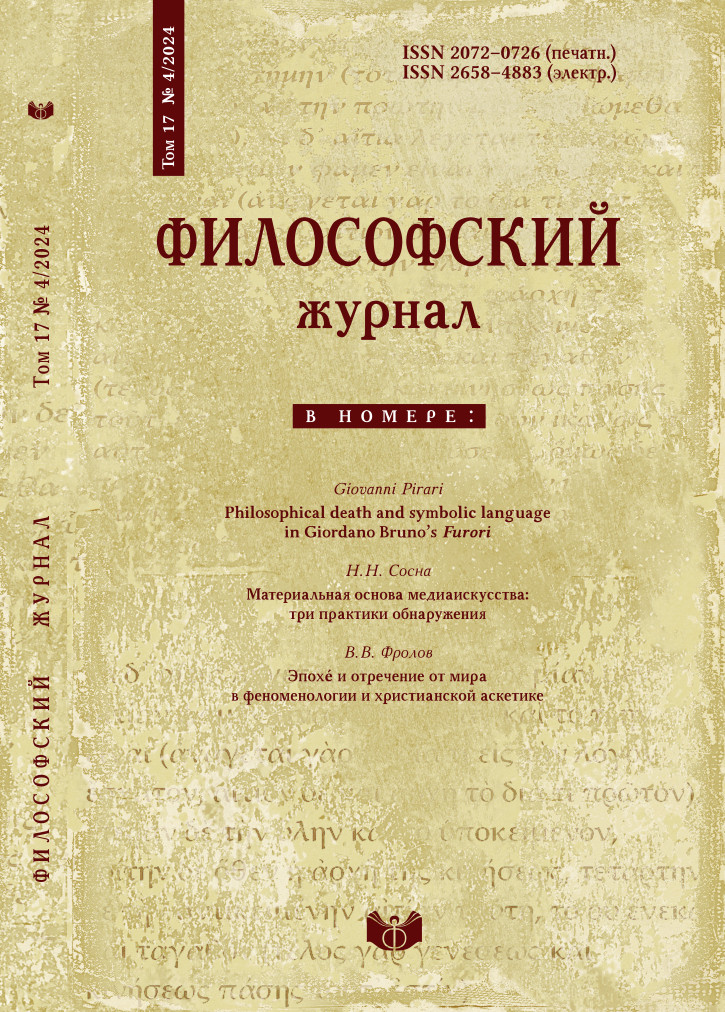Epoché and renunciation of the world in phenomenology and Christian asceticism
DOI:
https://doi.org/10.21146/2072-0726-2024-17-4-127-143Keywords:
phenomenology, asceticism, intentionality, involvement, peace, epoché, renunciation of the worldAbstract
The article compares the attitude to the world in Christian asceticism and the phenomenological practice of dealing with the natural attitude. Accordingly, the focus of attention is on the key steps of realization of ascetic experience, on the one hand, and phenomenological experience, on the other: i.e. renunciation of the world and phenomenological epoché. The author proceeds from the fact that in modern philosophy it is phenomenology (including its existential version) that has made human world-relationship the topic of its research; it is thanks to it that the world as a phenomenon and the existential connections of a person with the world are in the center of attention. At the same time, deep elaboration of the experience of worldly existence is also characteristic of the ascetic tradition, in this case a Christian one (Buddhist asceticism is not touched upon in the article). The author’s task is a cross-disciplinary convergence of both traditions and identification of common problem areas in this convergence. At the same time, the author takes into account the attempts of other authors (S.S. Horuzhiy, N. Depraz, Ch. Gschwandtner) and points out the possible shortcomings of their approaches, associated, from the perspective we are interested in, with an overly bold interpretation of ascetic practices as a kind of options for the implementation of the phenomenological epoché. In the author’s opinion, there is a fundamental difference between them, since it is debatable whether the epoché can neutralize the existential ties of a person with the world at all and thus be likened to renunciation of the world in asceticism.






